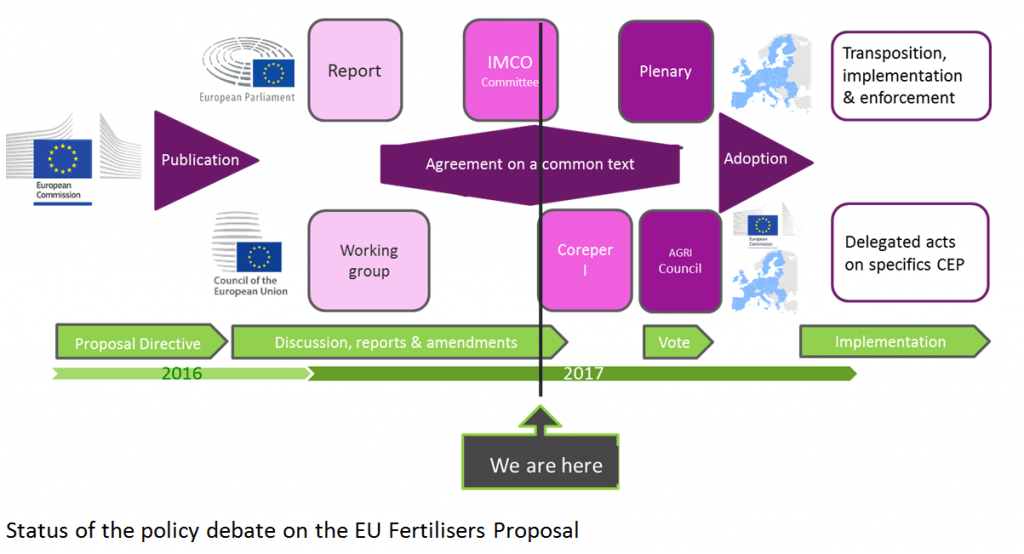|
After the vote on the opinions of the ENVI, AGRI and INTA Committees on the Commission’s proposal for a fertilising product regulation, the IMCO Committee published its final draft report on 25 July 2017. The first reading in the Plenary is scheduled on 3 October 2017.
Ahead of the Plenary’s 3 October discussion on the CE marked fertilising products proposal, the European Compost Network (ECN) regards several elements included in the report as tabled for discussion in the Plenary as incompatible with the overall objective to increase the use of recycled nutrients:
- The contradiction of the definition of waste
- The absence of a defined list of input materials for compost and digestate
- The proposed limit value for lead (Pb) of 20 mg Pb/kg;
If adopted as such, the report would lead to the exclusion of bio-waste materials for CE marked fertilising products, and thus would position the Parliament against overall Circular Economy goals.
ECN therefore calls upon the MEPs to consider making the necessary changes to these and other aspects in the report, following the suggestions as included in the latest ECN recommendations ahead of the Plenary vote ahead of the Plenary vote, in order to fulfil the shared objective of ensuring recycled bio-waste and other secondary raw materials will be part of CE fertilising products.
The Internal Market and Consumer Protection Committee (IMCO) has the overall lead on the discussion on the fertilisers proposal in the European Parliament and voted on its report on 12 July 2017. Based on ECN’s position on the Commission’s proposal the European Compost Network has followed the debate in the European Parliament and expressed again that harmonised and reliable criteria for compost and digestate, which will be placed as organic fertilisers and soil improvers on the European market should be set. These should be based on the technical proposal on end-of-waste criteria for compost and digestate, worked out by the Joint Research Institute ‘IPTS’ of the European Commission.
After the final vote on the Parliament’s report in October it is likely that the inter-institutional discussion between the Commission, the Council and the Parliament will start.

|